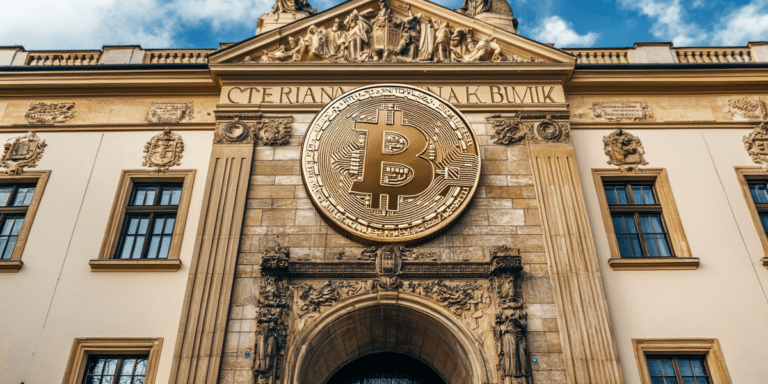El Salvador Overhauls Bitcoin Rules for IMF Billions
Key Takeaways:
- El Salvador makes Bitcoin payments optional for businesses to comply with IMF regulations.
- The country holds 6,049 BTC and plans to expand its reserves in 2025.
- As El Salvador adapts, Texas and Arizona lead a new wave of state-level Bitcoin reserves.
El Salvador is significantly revising its Bitcoin policies to meet international financial standards. The government swiftly amended the El Salvador Bitcoin law, changing the previous mandate that required businesses to accept Bitcoin as legal tender.
El Salvador's Bitcoin Pivot: New Rules Meet IMF Terms
On January 29, President Nayib Bukele sent the legislation to the Legislative Assembly, which approved the bill with 55 votes in favor and only two against, according to Reuters.
The quick approval came after El Salvador’s December agreement with the International Monetary Fund (IMF) for a $1.4 billion loan. IMF regulations required the country to scale back its Bitcoin reliance and modify its crypto policies, particularly the payment mandate.
El Salvador began using Bitcoin in 2021, making history as the first country to adopt it as legal tender. The latest amendment carefully preserves Bitcoin's status, making its usage more flexible for businesses.
Ruling party lawmaker Elisa Rosales supported the changes. She emphasized the balance between Bitcoin's status and economic stability.
The reforms brought significant changes to Bitcoin policies. They removed Bitcoin tax payments and the state's obligation to facilitate transactions.
Despite these regulatory adjustments, El Salvador continues its Bitcoin adoption strategy.
The country has purchased an additional 12 BTC for its strategic reserves. This brings its total to 6,049 BTC, valued at approximately $635 million.
This investment has proven profitable. They've seen a 127% return on their Bitcoin purchases at an average purchase price of $46,000 per Bitcoin.
An official from the El Salvador Bitcoin Office announced plans to “intensify” Bitcoin purchases in 2025, reinforcing Bukele’s Bitcoin strategy.
El Salvador's evolving approach to Bitcoin reflects its effort to balance innovation with regulatory compliance.
US States Compete for Bitcoin Dominance as Texas Steps In
While El Salvador pioneered national Bitcoin adoption, U.S. states are now following suit. Texas has emerged as a leading force in this movement. The state's initiatives mirror El Salvador's early commitment to embracing cryptocurrency as a strategic asset.
The Lone Star State is advancing its strategic Bitcoin reserve plans, joining Arizona and Utah in exploring state-backed Bitcoin investments. Lawmakers push for crypto integration, aiming to modernize finance and position Texas as a digital economy leader
Texas Lieutenant Governor Dan Patrick recently included it in the state’s 2025 legislative priorities.
Senator Charles Schwertner echoed this sentiment in a post on X, stating that a strategic Bitcoin reserve “would position [the] state at the forefront of the digital economy, driving growth and securing economic freedom for our great state.”
Texas Representative Giovanni Capriglione, in December 2024, also pushed forward legislation in the state’s House of Representatives to create a Texas strategic Bitcoin reserve.
The legislation would allow fees, taxes, and contributions to be paid in BTC, which could be used to help create the reserve.
Arizona State is also pushing on with its proposed Strategic Bitcoin Reserve (SBR) Act, becoming the first state in the U.S. to pass out of the committee phase of the bill.
This was announced by Dennis Founder, CEO and Founder of advocacy group Satoshi Act Fund on X.
The proposed Strategic Bitcoin Reserve (SBR) Act allows the state to invest up to 10% of its general fund and retirement assets into Bitcoin, potentially leading to a $7.8 billion Bitcoin investment if the full allocation is utilized.



